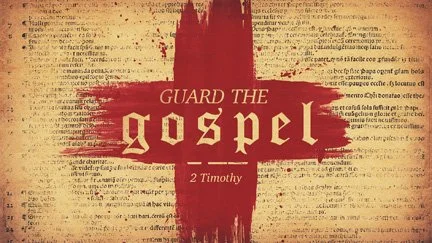It was just an average, ordinary night in the life of this group of shepherds. As usual, they had gathered around the fire, keeping themselves awake by talking about their work, about religion, and especially about politics. This decree from Rome that all the world had to be taxed meant that people were on the move, traveling to their hometowns in order to be registered. They talked about the huge crowds of people who had descended on the small town of Bethlehem, so many that there was no room to put them all. And the shepherds agreed that they would much rather be out here on the hillside than crammed into an overcrowded inn.
These shepherds had to pay close attention to their sheep, because these weren’t just any sheep. These sheep were destined to be used in the sacrifices in the Temple in Jerusalem, and they had to be without any blemish or flaw. Because of the constant need for sacrificial lambs, the Temple authorities kept designated flocks out here near Bethlehem just for that purpose. William Barclay wrote in his commentary on Luke, “It is a lovely thought that the shepherds who looked after the Temple lambs were the first to see the Lamb of God …” But I’m getting ahead of myself.
Shepherds didn’t have an easy life. They were looked down on by the orthodox Jews, especially the Pharisees, because they were not able to keep all the requirements of the ceremonial laws, such as the hand washing. Shepherds sometimes came into contact with dead animals, and that made them ritually unclean. But they couldn’t just leave everything and go into Jerusalem to be made ritually clean again every time they touched something unclean. To some people, shepherds were probably considered social outcasts. And I think it is significant that the first public announcement of the birth of Jesus was to those on the fringe. One commentator said, “The choice was deliberate. Since the gospel is for all people, it was announced first of all to a group whom many would exclude from polite society. But God will not exclude them from the good news.”
Alongside this negative view of shepherds, we also find a more positive image in the Old Testament. The kings were referred to as shepherds by God, because he intended their primary role to be caring for the people as a shepherd cares for his sheep. And God did not hesitate to condemn the kings through his prophets when the kings failed in this duty. In fact, God declared that he himself would become the shepherd of his sheep. Isaiah 40:11 says that God “will feed his flock like a shepherd, he will gather the lambs in his arms …” And in the 34th chapter of Ezekiel, God pronounced judgement on the failed shepherds, the kings, and then promises, “I myself will search for my sheep and look after them … I will tend them in a good pasture … I myself will tend my sheep and have them lie down … I will search for the lost and bring back the strays. I will bind up the injured and strengthen the weak …” And, of course, in the Gospel of John, Jesus referred to himself as the Good Shepherd.
So we have these shepherds in the fields outside Bethlehem keeping watch over their flocks by night. Luke tells us that an angel of the Lord suddenly appeared to them. And the glory of God shone around the shepherds, and they were terrified. In the King James Version, it says that the shepherds were “sore afraid.” I asked a group of kids one time what they thought it meant to be “sore afraid,” and one little boy said, “It means you’re so scared that it hurts!” But like so many other times, the angel’s first words to the shepherds was, “Don’t be afraid.” The angel had come to bring them good news of great joy, and that news wasn’t just for them, but for all people.
By then, the shepherds must have been really curious about what the message was going to be. But I don’t think they ever imagined hearing the words that came next. The angel said that on that very night, in the town of Bethlehem, a baby had been born, a Savior, who was Christ the Lord. The angel uses three specific names for this baby boy. Savior was a term familiar to both Jews and Gentiles. It means “healer” or “deliverer.” Christ is the Greek word for the Jewish word Messiah. The Jews had been watching and waiting for their Messiah for hundreds of years, longing for the day when the anointed one would rule on the throne of David. And the third name the angel used for the baby was Lord. This word was used in the Greek Old Testament to refer to God, and it was intended to affirm the deity of Jesus Christ.
The angel went on to tell the shepherd where they could find this baby. He would be lying in a manger, wrapped in swaddling clothes. Mangers were very ordinary and simply constructed bins of grain where animals could eat. It was something the shepherds would have known about firsthand. When they went into the town, they found the baby Jesus lying in a manger, just as the angel had said. Grassi wrote, the shepherds “know that the Lord was indeed the shepherd of his people and that he would send a king, who would feed his people like a shepherd. Here was a child lying in a feeding trough, the very place they often fed their sheep and other animals. This extraordinary sight led them to a remarkable concurrence: this child was indeed the nourishment of this people!”
It was the custom of that day that when a baby boy was born, the local musicians would come to the house to greet him with special music. But this wasn’t done for Jesus; he wasn’t born in Nazareth, where everyone knew Mary and Joseph. They were in a town where they may not have known anyone. So God sent his angels to sing for Jesus. Luke says that there was a multitude of the heavenly host. The word host was used to refer to an army; there was an army of angels in the sky over Bethlehem, singing a song to and about Jesus.
The angels sang about two things: praise for God and peace on earth. Praise might be considered the most real and spontaneous response to the love and presence of God. Praise is not the same as thanks. We praise God for who he is; we thank God for what he does. The birth of Jesus was definitely an occasion for praising God. It meant that God himself had come to earth as one of us in order to make himself known to us more fully and to call us to him. Frederick Buechner wrote, “The claim that Christianity makes for Christmas is that at a particular time and place God came to be with us himself. When Quirinius was governor of Syria, in a town called Bethlehem, a child was born who, beyond the power of anyone to account for, was the high and lofty One made low and helpless. The One who inhabits eternity comes to dwell in time. The One whom none can look upon and live is delivered in a stable under the soft, indifferent gaze of cattle. The Father of all mercies puts himself at our mercy.”
Some of you may remember news commentator Harry Reasoner. I like what he wrote about Christmas:
The basis for this tremendous annual burst of gift buying and parties and near hysteria is a quiet event that Christians believe actually happened a long time ago. You can say that in all societies there has always been a midwinter festival and that many of the trappings of our Christmas are almost violently pagan. But you come back to the central fact of the day and quietness of Christmas morning – the birth of God on earth.
It leaves you only three ways of accepting Christmas. One is cynically, as a time to make money or endorse the making of it. One is graciously, the appropriate attitude for non-Christians, who wish their fellow citizens all the joys to which their beliefs entitle them. And the third, of course, is reverently. If this is the anniversary of the appearance of the Lord of the universe in the form of a helpless babe, it is a very important day.
It’s a startling idea, of course … It’s so revolutionary a thought that it probably could only come from a God that is beyond logic, and beyond theology. It has a magnificent appeal. Almost nobody has seen God, and almost nobody has any real idea of what he is like. And the truth is that among men [and women] the idea of seeing God suddenly and standing in a very bright light is not necessarily a completely comforting and appealing idea.
But everyone has seen babies, and most people like them. If God wanted to be loved as well as feared he moved correctly here. If he wanted to know his people as well as rule them, he moved correctly here, for a baby growing up learns all about people. If God wanted to be intimately a part of [humanity], he moved correctly, for the experience of birth and familyhood are our most intimate and precious experiences.
So it comes beyond logic. It is either all falsehood or it is the truest thing in the world. It’s the story of the great innocence of God the baby – God in the form of man – and has such a dramatic shock toward the heart that if it is not true, for Christians, nothing is true. So, if a Christian is touched only once a year, the touching is still worth it, and maybe on some given Christmas, some final quiet morning, the touch will take.
The second theme of the angels’ song was peace on earth. How do we hear this word of peace on earth when there is war in so much of it? And our time is only like so many others that have come before when peace seemed only an idealistic wish, an impossible dream. In 1965, U Thant, Secretary General of the United Nations, spoke before 67 distinguished scholars and statesmen from 19 countries of the world, who had come together to talk about the requirements for world peace. He asked them these questions: “What element is lacking so that with all our skill and all our knowledge we still find ourselves in the dark valley of discord and enmity? What is it that inhibits us from going forward together to enjoy the fruits of human endeavor and to reap the harvest of human experience? Why is it that, for all our professed ideals, our hopes, and our skills, peace on earth is still a distant objective seen only dimly through the storms and turmoils of our present difficulties?”
It is in times like ours, however, that we need to especially remind ourselves of the reality of God’s peace, the peace that passes all understanding, as the apostle Paul defines it. It is the peace that is inside us no matter what happens on the outside to us, to our families, to our country, or to our world. The peace of God comes through Jesus Christ, the One called the Prince of Peace. We find that peace only when we look deep down inside, into that part of God that dwells within each of us. It is a peace that the world cannot give or take away.
The angel messenger and the heavenly angel choir brought incredible news to the shepherds that night. Indeed, the good news they brought was, “Don’t be afraid. For I bring you good news of great joy which will come to all people; for to you is born this day in the town of Bethlehem a Savior, which is Christ the Lord … Glory to God in the highest, and on earth peace …”




























